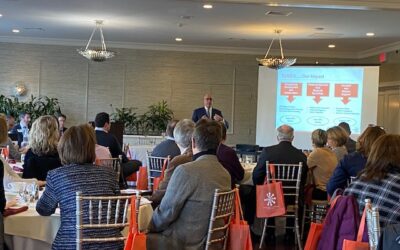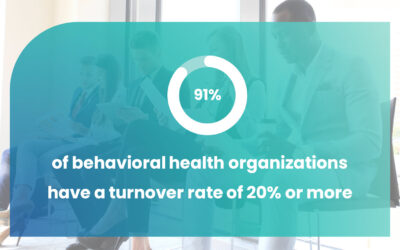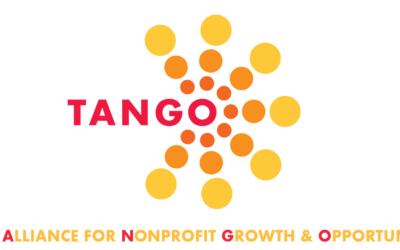Building Bridges - The TANGO Blog
TANGO’s mission is to build bridges between the nonprofit sector and the business sector. The mission is based on the belief that the interests of the sectors are capable of being aligned, and that communities do better when their interests are aligned.
More about the TANGO Blog
|
An alignment of interests is not the same as a merger of interests. Each sector is responsible for different tasks within a community, both sets of tasks are necessary conditions for community stability, and each sector should be allowed to perform the tasks for which it is best suited without undue interference from the other. However, recognizing the equally important role each sector plays in the community, the sectors should support each other, and doing this will require a bridge over which information, ideas, problems, solutions, and goals are exchanged freely in both directions. |
The principles upon which the bridge will be built are the TANGO Founding Principles appearing at the beginning of our textbook, The TANGO Nonprofit Method. This Blog is one component part of the bridge we will be building, and it will be both a platform and a portal to identify relevant information, ideas, problems and solutions and to discuss them openly and critically. Finally, our roots are in the business sector, and we will bring “business-like” rigor to our commentary. We will be frank and clear so as not to be misunderstood, while always being respectful. We also invite counter-opinion from those who disagree. Having said this, our critique of nonprofit sector organizations will be based on the following rigorous standards and principles: |
ONE: Tax-exempt status is a privilege conferred by federal and state legislative acts. Tax exemptions and tax deductions reduce public tax revenue, and, as such, indirectly subsidize nonprofit sector operations.
TWO: The governing boards and management teams of these organizations must adhere strictly to high fiduciary standards when expending and managing the funds and assets of the organizations they serve. Moreover, as fiduciaries of financial and other assets dedicated to a public/charitable purpose, nonprofit governing boards have a higher level of responsibility than do our elected officials who are not held to fiduciary standards when they exercise their voting authority over public assets.
THREE: Nonprofit governing boards have a duty to develop a set of measures and metrics to gauge both internal operating functions and the social impact of their organizations. The applicable measures and metrics should be prepared in conformance with the fiduciary standards mentioned above consistent with applicable benchmarks, data, and known industry standards.
FOUR: Organizations should report prominently and candidly the results of operations relative to the measures and metrics. The fiduciaries governing boards of these organizations must have the courage to report poor measures and metrics, not unlike the manner in which publicly traded business organizations are required to do so – even if over the objections of management.
FIVE: Nonprofit Organizations should not misuse the emotional appeal of their mission. The emotional appeal of a mission statement should be subordinate to the measurement and metric outcomes.
February 2024 – Founders Forum by Rollin Schuster
I am writing this as I fly back from Arizona. I have the honor of being a Trustee of Franklin Pierce University, we have campuses in New Hampshire, Arizona and Texas. This was my first visit to our Arizona campus, where we had a full day trustee meeting on Friday then had the opportunity to attend our White Coat graduation ceremony for our most recent class of Doctor’s of Physical Therapy.
January 2024 – Founders Forum by Rollin Schuster
As many of you know we acquired the rights to show the Oscar nominated movie UnCharitable. It’s based on Dan Pollatta’s book and produced by acclaimed Hollywood Director Stephen Gyllenhaal.
Last Thursday evening was a cold and rainy, nasty night here in Hartford yet we filled the theatre at Trinity College with TANGO Members, all braving the weather to see the film UnCharitable.
Leveraging Technology to Improve Staffing in the Nonprofit Health & Human Services Space
Staffing has been especially challenging for nonprofit Health and Human Services (HHS) organizations in recent years. Staffing in this industry has always been particularly difficult due to limited budgets, high employee turnover rates, and the level of specialized skills and certifications required for these roles.
December 2023 – Founders Forum by Rollin Schuster
Happy Holidays! 2023 was quite a year for us here at TANGO. We experienced unprecedented growth in our membership and most importantly a lot of positive feedback from many of you…thank you! This feedback is taken to heart and inspires us to do more to support the sector.
Why Video Communications is Crucial for Nonprofits
Why Video Communications is Crucial for Nonprofits
In an increasingly digital world, nonprofit organizations face the challenge of standing out and effectively conveying their messages. Video communication emerges as a powerful tool to meet this challenge. Here’s why:
How Nonprofits Can Engage in and Benefit from Government Relations
Learn how the cultivation of a robust and symbiotic relationship with local, state, or even national government by a nonprofit can be a mutually beneficial dynamic. This relationship can be facilitated by clear communication, gathering and organization of data, building key relationships, and alignment of an organization’s mission with public policy
November 2023 – Founders Forum by Rollin Schuster
As we approach the end of the year we are on track to have experienced the biggest growth of our membership since the early days of our existence. This is exciting because member growth drives innovation and the subsequent resources that we can deliver into supporting the sector. The old adage “ the bigger we get, the more we can do to help the sector” is true!
October 2023 – Founders Forum by Rollin Schuster
We’ve finally entered the Fall season; with that comes the beautiful foliage here in New England, the sweet taste of fresh apple cider from the local orchards and families getting together for the upcoming holidays. This is also the season of our Annual Conference which goes by the title “Building Bridges”.
Maximizing Nonprofit Impact: Leveraging Salary Budgets for Talent Acquisition Success
Nonprofits should carefully evaluate their budget constraints and consider the advantages of collaborating with Talent Acquisition firms. Redirecting funds from vacant position salaries should align with the organization’s broader financial strategy and mission.
September 2023 – Founders Forum by Rollin Schuster
Fall is upon us. It is truly is one of my favorite times of year here in New England . With it always comes a significant increase in activity as we move toward the close of another year.
As TANGO Member’s you will see an acceleration in the number of workshops and webinars we are hosting. This includes two of our most popular events; TANGO’s HR Forum, slated to take place on October 5th.
Want More Content Like This?
For all the latest news, events and nonprofit related content, become a member and receive our montly Trends Newsletter. membership is free for all nonprofit organizations.







